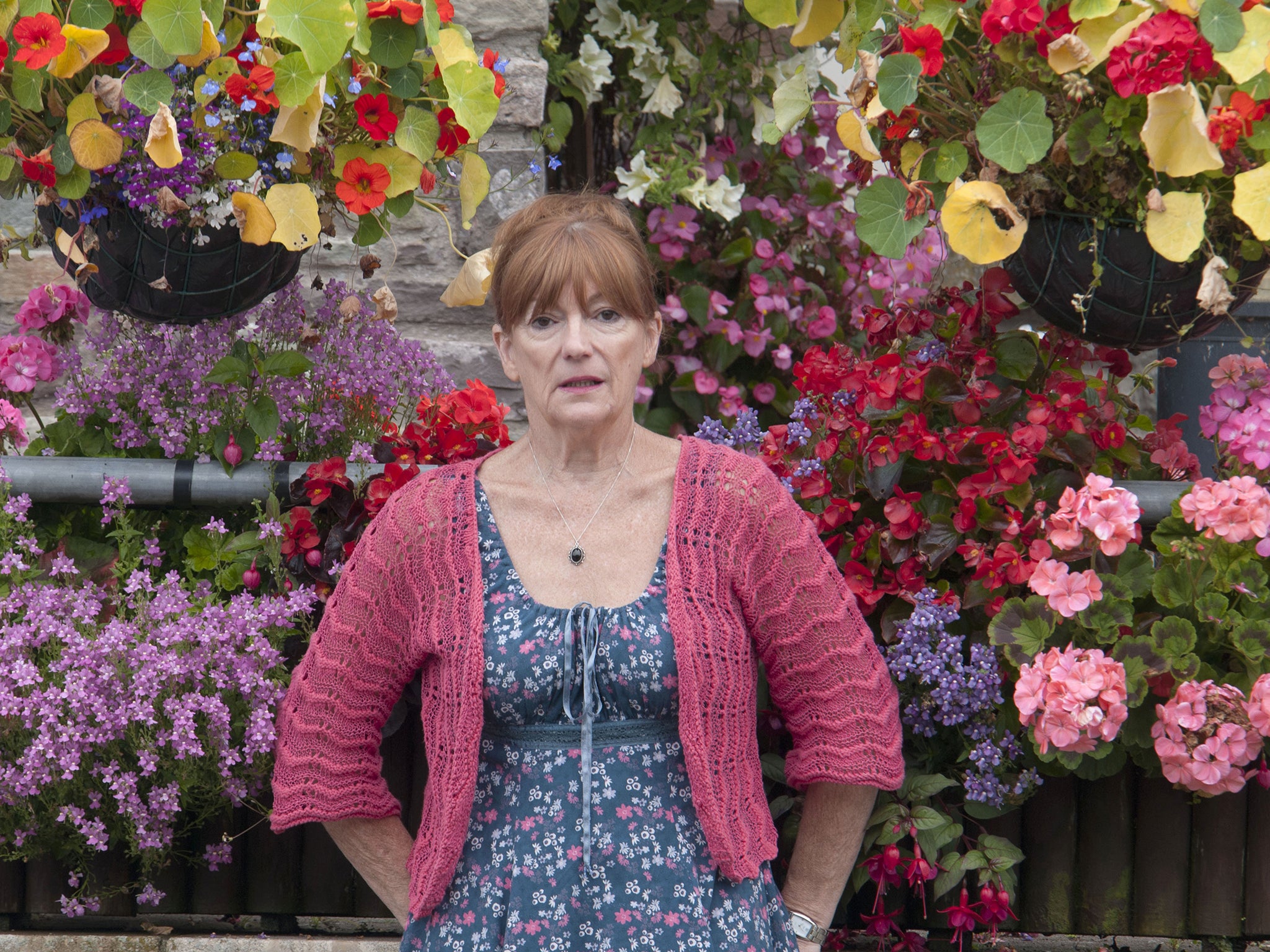Anaesthetic awareness: My real-life waking nightmare
When Meryl Davies was put to sleep for a routine operation, little did she know that the next few hours would come to define her life

Meryl Davies didn’t know how long she had been asleep when she woke up, unaware of where she was but with a searing pain in her stomach. And then she realised: she had woken up in the middle of a Caesarean section operation. “The pain was so bad I simply couldn’t stand it. My brain felt like it was exploding,” she says. “I thought I had died.”
Ms Davies had suffered “anaesthetic awareness”, the phenomenon that occurs when a patient has not been given enough anaesthetic and comes round mid-way through surgery. It happens to about 150 people every year in the UK alone, a report warned this week.
What makes Ms Davies extraordinary is that it has happened to her twice. Her first experience, during the C-section, was more than 20 years ago. “I remember I had this horrific pain but I completely couldn’t comprehend it,” she recalls. With blind panic, she felt a burning pain as the surgeon sliced open her stomach, her taped eyes blocking out the sight of her son being born.
She lay stationary, detached from her surroundings and unable to move as her mind flew through the terrible possibilities. “I couldn’t understand why anyone would want to be doing this to me, this awfulness and terrible pain,” shesays. “I was plunged into mayhem. I didn’t even know I was paralysed, because I didn’t know they paralysed you. I was powerless.”
As she was wheeled out of the operating theatre, she clung to her bedding, praying she was still alive. “I thought I was still dead. I felt the sheet underneath me with my hand and thought what is this?”
Ms Davies, of Brecon, Powys, was later diagnosed with post-traumatic stress disorder, as well as fibromyalgia – a condition that causes anxiety, sleeplessness and chronic pain. But having sworn never to set foot in a hospital again, four years later she stood at death’s door with gangrenous appendicitis and peritonitis. She had no choice but to have surgery.
“I thought the Caesarean had been a one-off. I thought, you know, this is a small hospital in a small town.” In the first of the two new operations she needed, a new anaesthetist reassured her. “He said I probably didn’t have enough anaesthetic for the [sake of the] baby. He said, ‘I’ll watch you and you’ll be okay’. I believed what he said.”
But when she met her team for the second of the two operations, she found she had the same anaesthetist who carried out her Caesarean.
The legal case that Ms Davies later fought, and won, revealed that the technique used in her operations had been trialled in a teaching hospital and quickly withdrawn. “I limped away from that. I became even more ill. I wasn’t getting any help,” she says. “I was desperately trying to carry on with life, desperately trying to work, and desperately to take care of my child.”
Now she suffers from claustrophobia, making something as mundane as driving to the shops difficult. In the early days she suffered nightmares and “video effect flashbacks”, where a trigger would superimpose her horrific experiences on to her vision.
“When you have anaesthetic awareness, you are changed,” she says. “You are defined by this experience. Unfortunately you cannot leave it behind.”
A study by the Royal College of Anaesthetists, published this week, found that anaesthetic awareness occurs in one in every 19,000 operations, with two in five patients suffering long-term psychological harm such as PTSD. The professional body has recommended the introduction of a check-list to be performed at the start of every operation. But Ms Davies believes that more emphasis needs to be placed on logging sufferers of anaesthetic awareness so that they can talk about it, and avoid what she calls the “awful half-existence” that some sufferers experience.
The medical profession also needs to provide specialist help for PTSD sufferers Ms Davies says that time and time again she was sent to counsellors with no specialist training.
People can have very different experiences of awareness. Carol Weihrer, 63, woke up during the removal of her right eye in a hospital near Washington DC in America. The first thing Carol knew of her terrifying situation was disco music playing in the operating theatre.
“I was very alert. And then I heard them say, ‘pull harder, you have to really pull’”. What the doctor was describing was the gouging of the eye ball with an instrument known as an ocular spoon.
“I was trying to wiggle things, and I was still pondering whether I was paralysed. I started to scream and nothing came out of my mouth. I should have levitated off the table with all the effort I was putting in.”
Still able to feel the pulling and tugging on her eye she heard the doctor call again to pull harder. “I knew I was in trouble - I was told this surgery was between four and six hours.” She ended up being awake for five and a half. She says she felt like she was being buried alive.
Carol too has suffered from PTSD, and years later still has to sleep in a reclining chair as beds bring back her awful experience. She lives in fear of triggers, such as the colour of her operating theatre’s wall, which can bring on panic attacks.
Heart rate and brain activity monitors are slowly being rolled out in UK hospitals, but for those like Meryl and Carol who are already suffering it is too late. “This isn’t a nightmare, this is living hell.”
Join our commenting forum
Join thought-provoking conversations, follow other Independent readers and see their replies
0Comments